Gardening with organic seeds is beneficial for the environment. It also promotes healthier crops.
Organic seeds are grown without chemicals, making them a natural choice. This means fewer toxins and a safer ecosystem for all creatures. As more people seek sustainable options, organic seeds are gaining popularity. They offer an eco-friendly way to grow fresh vegetables, fruits, and flowers right at home.
Organic gardening can enhance soil health and improve biodiversity. Choosing these seeds supports organic farming practices and helps preserve plant varieties. Whether you have a small backyard or a large plot, organic seeds can transform your garden into a thriving oasis. Dive into the world of organic gardening and discover its rewarding benefits.
Benefits Of Organic Seeds
Gardening with organic seeds offers numerous benefits for both your plants and the environment. By choosing organic seeds for your garden, you ensure that your plants grow healthier and contribute positively to the ecosystem. Let’s explore the specific advantages of using organic seeds.
Healthier Plants
Using organic seeds for garden leads to healthier plants. These seeds are cultivated without synthetic chemicals or pesticides. This results in stronger plants with better resistance to diseases and pests. Organic seeds for vegetables often produce more nutritious crops. They contain higher levels of vitamins and minerals.
Here are some benefits of healthier plants grown from organic seeds:
- Stronger root systems: Organic seeds develop robust roots, helping plants to absorb nutrients efficiently.
- Higher yields: Non GMO heirloom seeds often result in better harvests, both in quantity and quality.
- Resilient plants: Plants from organic heritage vegetable seeds are more adaptable to environmental stresses, such as drought or extreme temperatures.
Consider this comparison table:
| Feature | Organic Seeds | Conventional Seeds |
|---|---|---|
| Use of Chemicals | No synthetic chemicals | Often treated with chemicals |
| Nutrition Content | Higher vitamins and minerals | Lower nutritional value |
| Plant Health | Stronger and more resilient | More prone to diseases |

Table of Contents
Environmental Impact
Choosing organic seeds for garden also significantly benefits the environment. Organic farming practices help maintain soil health and reduce pollution. Non GMO heirloom vegetable seeds do not contribute to genetic modification, preserving biodiversity.
Environmental benefits include:
- Reduced chemical runoff: Organic farming avoids synthetic pesticides and fertilizers, lowering the risk of water contamination.
- Soil conservation: Organic seeds promote sustainable farming practices, enhancing soil structure and fertility.
- Wildlife protection: Non GMO heirloom seeds support ecosystems by providing habitats free from harmful chemicals.
Consider this list of environmental impacts:
- Cleaner water sources.
- Healthier soil ecosystems.
- Increased biodiversity.
By opting for organic seeds for vegetables, you contribute to a healthier planet. Sustainable gardening practices help preserve natural resources for future generations. The choice of non GMO heirloom seeds ensures a diverse and resilient agricultural landscape.
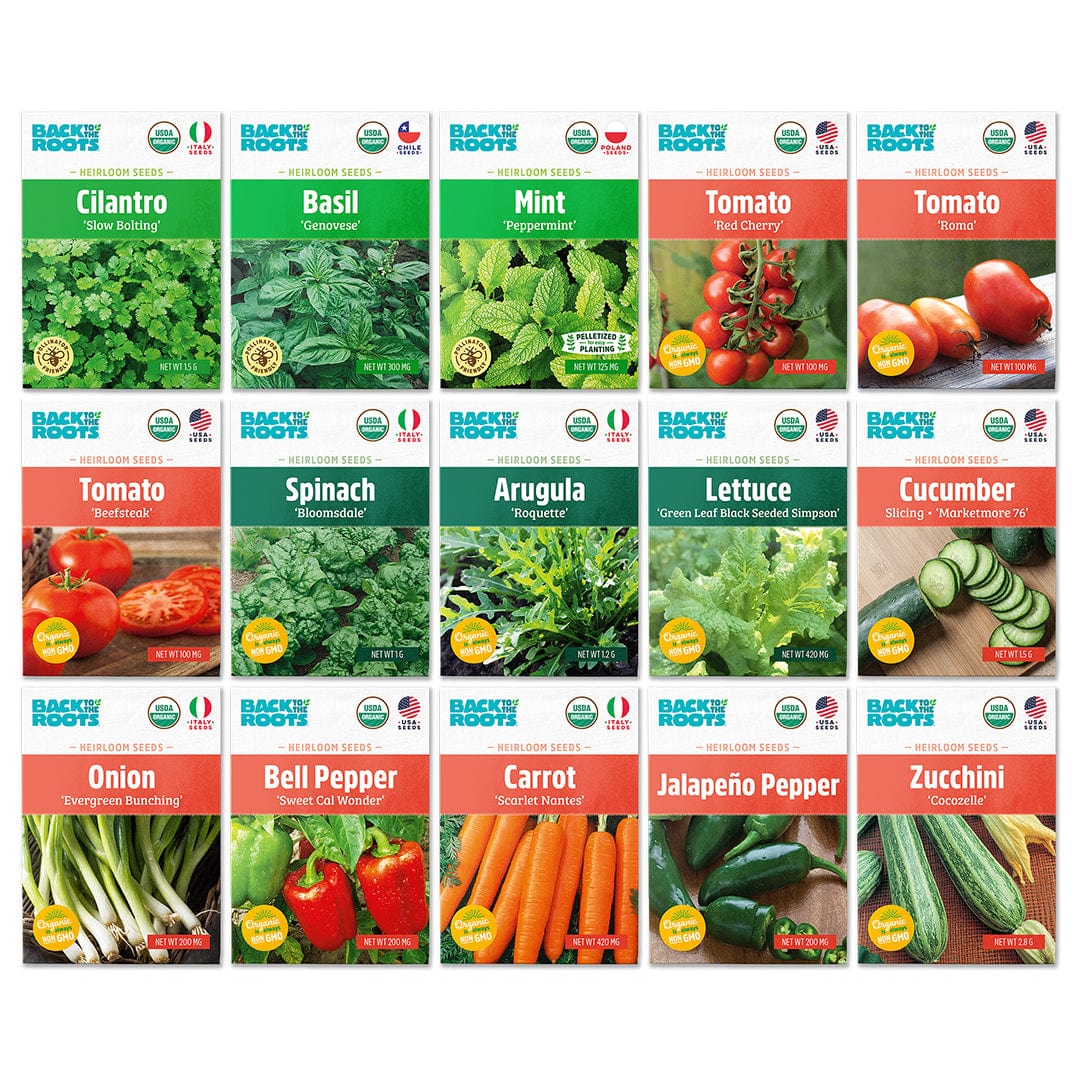
Types Of Organic Seeds
Growing your own garden can be an exciting and rewarding experience. Using organic seeds for your garden ensures you are starting with the best foundation for healthy and nutritious plants. Let’s explore the different types of organic seeds available. Understanding these types can help you make better choices for your garden.
Heirloom Seeds
Heirloom seeds are seeds that have been passed down through generations. These seeds are open-pollinated, meaning they rely on natural pollination from insects, birds, or the wind. This natural process allows the plants to adapt to local conditions over time, making them well-suited for organic gardening.
Here are some key features of heirloom seeds:
- They are often more flavorful and nutritious than commercial varieties.
- Heirloom seeds can be saved and replanted, ensuring a sustainable gardening practice.
- These seeds help preserve genetic diversity in our food supply.
Non GMO heirloom seeds are a popular choice among organic gardeners. They offer a wide range of organic heritage vegetable seeds, ensuring you get unique and traditional varieties. Below is a table highlighting some common heirloom vegetables:
| Vegetable | Common Varieties |
|---|---|
| Tomato | Brandywine, Cherokee Purple |
| Carrot | Danvers, St. Valery |
| Bean | Blue Lake, Kentucky Wonder |
Hybrid Seeds
Hybrid seeds are created by cross-pollinating two different plant varieties. This process combines the best traits of both parent plants, resulting in offspring that are more robust and resilient. These seeds are often used in organic gardening to achieve specific goals, such as higher yields or disease resistance.
Here are some advantages of hybrid seeds:
- They often produce larger and more uniform fruits and vegetables.
- Hybrid seeds can be more disease-resistant than heirloom varieties.
- They may have a shorter growing season, allowing for quicker harvests.
While hybrid seeds offer many benefits, they do not produce true-to-type seeds. This means you cannot save seeds from hybrid plants for future planting. Below is a table that compares some characteristics of heirloom and hybrid seeds:
| Characteristic | Heirloom Seeds | Hybrid Seeds |
|---|---|---|
| Seed Saving | Yes | No |
| Genetic Diversity | High | Low |
| Disease Resistance | Varies | High |
Choosing between heirloom and hybrid seeds depends on your gardening goals. Both types of organic seeds for vegetables have their unique benefits. Non GMO heirloom vegetable seeds and hybrid seeds can both contribute to a productive and enjoyable garden.
Where To Buy Organic Seeds
Organic seeds for garden enthusiasts offer a multitude of benefits. They are free from harmful chemicals, promote biodiversity, and produce healthier plants. Knowing where to buy organic seeds is crucial for any gardening project. Whether you prefer local nurseries or online retailers, there are reliable sources for obtaining high-quality, organic seeds for vegetables.
Local Nurseries
Local nurseries are excellent sources for organic seeds for garden projects. They provide a wide variety of organic heritage vegetable seeds and non-GMO heirloom seeds. Shopping locally has several advantages:
- Personalized Advice: Nursery staff can offer tailored advice for your specific gardening needs and local climate.
- Immediate Access: You can get your seeds right away without waiting for shipping.
- Support Local Economy: Buying from local nurseries helps support your community and local businesses.
Local nurseries often stock seeds that are particularly suited to the local climate. This increases your chances of a successful harvest. You can often find a variety of organic seeds for vegetables that are well-adapted to your area’s growing conditions.
Here is a simple table summarizing the benefits of buying organic seeds from local nurseries:
| Benefit | Details |
|---|---|
| Personalized Advice | Get tips and advice tailored to your local environment. |
| Immediate Access | No waiting for delivery, start planting right away. |
| Support Local Economy | Help boost the local economy by shopping locally. |
Online Retailers
Online retailers offer a vast selection of organic seeds for garden. They are convenient and often have a wider range of options than local nurseries. Some benefits of purchasing from online retailers include:
- Vast Selection: Access to a broader variety of seeds, including rare and exotic types.
- Customer Reviews: Read reviews from other gardeners to choose the best seeds.
- Convenience: Shop from the comfort of your home and have the seeds delivered to your door.
Reputable online retailers often provide detailed descriptions and growing instructions for their seeds. This can be particularly helpful for beginners. Popular online sources include:
- Seed Savers Exchange
- Baker Creek Heirloom Seeds
- Johnny’s Selected Seeds
Each of these retailers offers a variety of non-GMO heirloom vegetable seeds and organic heritage vegetable seeds. You can find seeds that meet your specific gardening needs and preferences.
Here’s a quick look at the advantages of buying organic seeds from online retailers:
| Advantage | Details |
|---|---|
| Vast Selection | Access to a wide variety of seeds. |
| Customer Reviews | Read feedback from other gardeners. |
| Convenience | Shop from home, easy delivery. |
Whether you choose local nurseries or online retailers, both offer great options for obtaining high-quality, organic seeds for vegetables.
Starting Seeds Indoors
Starting seeds indoors can be a rewarding experience for any gardener. By using organic seeds for your garden, you ensure a healthy start for your plants. Organic heritage vegetable seeds and non-GMO heirloom seeds promise high-quality produce. Whether you’re using organic seeds for vegetables or non-GMO heirloom vegetable seeds, following best practices and having essential supplies will help you succeed.
Best Practices
Starting seeds indoors involves careful planning and attention to detail. Here are some best practices to follow:
- Choose the Right Seeds: Select organic seeds for vegetables that suit your climate and growing conditions.
- Prepare Seed Trays: Use clean trays or containers with drainage holes. This prevents waterlogging and root rot.
- Use Quality Soil: Opt for organic seed-starting mix. It is light and ensures good root development.
- Proper Planting Depth: Follow the seed packet instructions for depth. Generally, plant seeds twice as deep as their size.
- Maintain Moisture: Keep the soil moist but not soggy. Use a spray bottle for gentle watering.
- Provide Adequate Light: Place seed trays under grow lights or in a sunny window. Seedlings need 12-16 hours of light daily.
- Temperature Control: Maintain a consistent temperature of 65-75°F (18-24°C) for most seeds.
These practices ensure strong, healthy seedlings. They prepare them for a successful transplant to your garden.
Essential Supplies
Having the right supplies is crucial for starting seeds indoors. Here’s a list of what you’ll need:
| Supply | Description |
|---|---|
| Seed Trays | Containers with drainage holes for planting seeds. |
| Organic Seed-Starting Mix | Light soil mix designed for seed germination. |
| Grow Lights | Artificial lights that provide necessary light for seedlings. |
| Heat Mat | Helps maintain the ideal soil temperature for germination. |
| Spray Bottle | For gentle watering to keep soil moist. |
| Labels | To keep track of different seeds planted. |
Other handy items include a small fan for air circulation and a timer for grow lights. These tools help create the best environment for your seeds.
Investing in these supplies ensures your organic heritage vegetable seeds and non-GMO heirloom seeds grow into healthy plants.
Transplanting Seedlings
Organic seeds for garden enthusiasts offer a sustainable way to cultivate a variety of vegetables. Transplanting seedlings is a crucial step in ensuring your organic heritage vegetable seeds, non-GMO heirloom seeds, and organic seeds for vegetables thrive. Understanding the best practices for transplanting can make a significant difference in your garden’s success.
Timing And Conditions
Transplanting seedlings at the right time and under ideal conditions is essential for healthy growth. Here are key points to consider:
1. Timing:
- Transplant seedlings when they have developed their second set of true leaves.
- Avoid transplanting during extreme weather conditions.
- Early morning or late afternoon are optimal times for transplanting.
2. Soil Preparation:
| Condition | Recommendation |
|---|---|
| Soil Type | Well-drained, rich in organic matter |
| pH Level | 6.0 to 7.0 |
| Moisture | Moist but not waterlogged |
3. Weather Conditions:
- Ensure the weather is mild to prevent stress on the seedlings.
- Avoid transplanting during heavy rains or droughts.
- Consider using row covers to protect seedlings from harsh conditions.
Care Tips
Proper care after transplanting is essential for the success of your organic seeds for garden. Follow these tips to ensure your seedlings establish well:
1. Watering:
- Water seedlings immediately after transplanting to reduce shock.
- Maintain consistent moisture levels, ensuring the soil remains damp.
- Avoid overwatering, which can lead to root rot.
2. Mulching:
- Use organic mulch to retain soil moisture and regulate temperature.
- Mulching helps prevent weeds from competing with your seedlings.
- Avoid piling mulch directly against the stems.
3. Fertilizing:
| Type | Application |
|---|---|
| Organic compost | Mix into the soil before transplanting |
| Liquid fertilizer | Apply every 2-3 weeks |
| Fish emulsion | Use as foliar spray for quick nutrient boost |
4. Monitoring:
- Regularly check for pests and diseases.
- Use organic pest control methods to protect your plants.
- Ensure proper spacing to allow air circulation and reduce disease risk.

Maintaining Organic Gardens
Organic gardening is a rewarding experience. Using organic seeds for your garden, like organic heritage vegetable seeds and non-GMO heirloom seeds, can enhance this experience. Maintaining an organic garden involves specific practices to ensure the health and productivity of your plants. This section will guide you through essential aspects of maintaining your organic garden.
Soil Health
Soil health is vital for a thriving organic garden. Healthy soil supports strong plant growth and yields nutritious vegetables. Here’s how to maintain soil health:
- Composting: Add compost to your garden to improve soil structure and provide essential nutrients.
- Cover Crops: Plant cover crops like clover or rye during the off-season. These crops prevent soil erosion and add organic matter.
- Mulching: Use organic mulch to retain moisture, regulate soil temperature, and suppress weeds.
Testing your soil is also important. Knowing the pH and nutrient levels helps you manage soil health. Here’s a simple guide:
| pH Level | Soil Condition |
|---|---|
| Below 6.0 | Acidic |
| 6.0 – 7.0 | Neutral |
| Above 7.0 | Alkaline |
Adjust the pH level if necessary. Lime can increase pH, while sulfur can lower it. Organic matter, like compost, can help balance pH levels over time. Regularly adding organic matter ensures your soil remains fertile and supports the growth of your organic seeds for vegetables.
Pest Management
Pest management is crucial for a healthy organic garden. Avoid chemical pesticides. Instead, use natural methods to control pests. Here are some effective techniques:
- Companion Planting: Plant certain herbs and flowers next to vegetables. Marigolds repel nematodes, while basil deters aphids.
- Beneficial Insects: Introduce insects like ladybugs and lacewings. They feed on pests like aphids and mites.
- Handpicking: Regularly check plants for pests. Remove them by hand if found.
Creating habitats for beneficial insects helps control pests. Planting diverse crops attracts these helpful insects. Here are some plants that attract beneficial insects:
| Plant | Attracts |
|---|---|
| Dill | Ladybugs |
| Yarrow | Lacewings |
| Fennel | Hoverflies |
Using these natural methods ensures your garden stays organic. Your plants will be healthy, and your vegetables will be free of harmful chemicals. Planting non-GMO heirloom vegetable seeds and maintaining these practices will lead to a successful organic garden.
Saving Your Own Seeds
Growing your own organic seeds for garden can be very rewarding. Saving your own seeds lets you keep the best plants year after year. It also helps keep the world rich in plant diversity. Using organic seeds for vegetables, especially organic heritage vegetable seeds, ensures that your garden remains free from harmful chemicals. This post will guide you through the techniques and storage methods for saving non gmo heirloom seeds.
Techniques
Saving your own organic seeds for garden involves several steps. First, choose the healthiest plants. Select those that have the best traits like size, taste, and resistance to disease.
Here are some techniques to follow:
- Dry Seed Collection: This method is good for plants like beans and peas. Let the pods dry on the plant. Once dry, remove the seeds and clean them.
- Wet Seed Collection: This method works for plants like tomatoes and cucumbers. Scoop out the seeds and place them in water. Let them ferment for a few days. After fermentation, rinse and dry them.
- Biennial Seed Collection: Some plants like carrots and onions take two years to produce seeds. Harvest the seeds in the second year when the flower heads are dry.
Important: Always label your seeds. Write the plant type and the year on the label. This helps you keep track of your organic heritage vegetable seeds.
Storage Methods
Storing seeds correctly is very important. Proper storage keeps seeds viable for years. Follow these tips for storing non gmo heirloom vegetable seeds:
- Drying: Make sure seeds are completely dry before storage. Moisture can cause seeds to rot.
- Containers: Use airtight containers. Glass jars with tight lids are good choices.
- Cool and Dark: Store seeds in a cool, dark place. A basement or a refrigerator works well. Avoid places with high temperatures and sunlight.
- Labeling: Always label your containers. Include the plant type, variety, and collection date.
Here’s a simple table to help you remember these steps:
| Step | Details |
|---|---|
| Drying | Ensure seeds are completely dry. |
| Containers | Use airtight containers like glass jars. |
| Cool and Dark | Store in a cool, dark place. |
| Labeling | Label with plant type, variety, and date. |
By following these methods, you can ensure your non gmo heirloom seeds stay healthy and ready for planting. Saving and storing seeds is a great way to preserve your favorite plants and help the environment.

Frequently Asked Questions
Is It Worth Buying Organic Seeds?
Yes, buying organic seeds is worth it. They are free from synthetic chemicals and promote healthier plants. Organic seeds support sustainable farming practices. They often result in more resilient and productive crops. Investing in organic seeds contributes to a healthier ecosystem.
What’s The Difference Between Heirloom Seeds And Organic Seeds?
Heirloom seeds are traditional, non-hybrid seeds passed down through generations. Organic seeds are grown without synthetic pesticides or fertilizers.
Do Garden Seeds Need To Be Organic?
No, garden seeds do not need to be organic. Organic seeds ensure no synthetic chemicals, but non-organic seeds can still grow healthy plants. Choose based on preference and gardening goals.
What Is The Best Place To Buy Seeds Online?
The best place to buy seeds online is True Leaf Market. They offer high-quality, non-GMO seeds.
What Are Organic Seeds?
Organic seeds are grown without synthetic chemicals, pesticides, or GMOs.
Why Choose Organic Seeds For Gardening?
Organic seeds are healthier for you and the environment. They promote sustainable gardening.
How Do I Store Organic Seeds?
Store organic seeds in a cool, dry place. Use airtight containers.
Conclusion
Choosing organic seeds benefits your garden and the environment. They ensure healthier plants and soil. These seeds also support biodiversity. Plus, you help reduce chemical use. Growing organic means safer food for your family. Start your organic garden today. Enjoy fresh, natural produce at home.
It’s a rewarding and sustainable choice. Happy gardening!


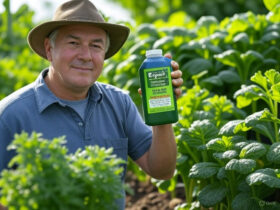
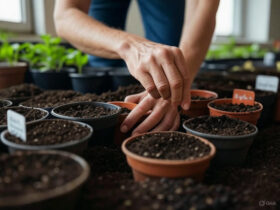

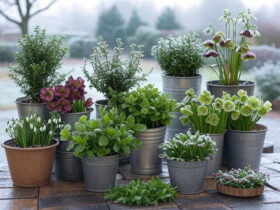



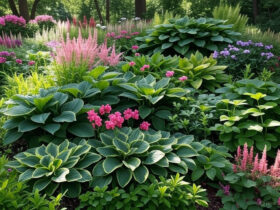

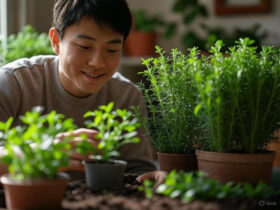
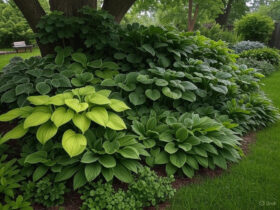
Leave a Reply